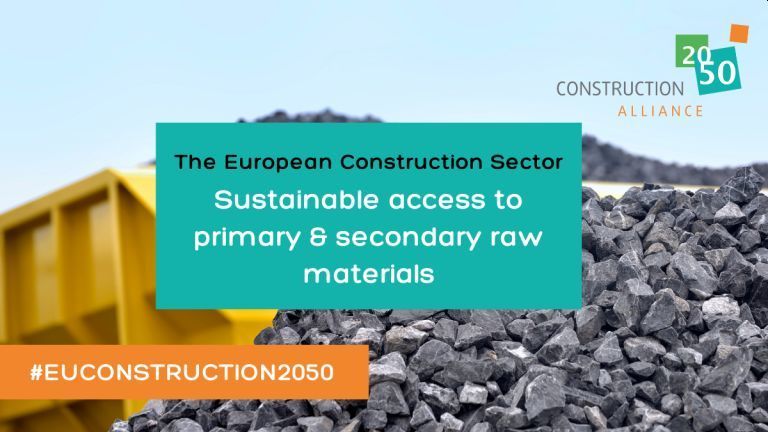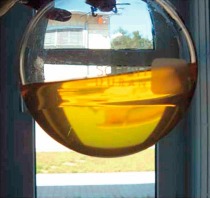Sustainable access to primary & secondary raw materials: Messages from the Construction 2050 Alliance
06.04.2022On March 24, the Construction 2050 Alliance gathered experts and the European Commission to discuss views of the sector about the current and foreseeable challenges regarding raw materials supply, and to present suggestions on what is needed to contribute towards a digital and green recovery leading to climate neutrality by 2050.
Indeed, construction has made significant progress regarding the use of secondary raw materials, and this will continue to be a priority over the years to come. Equally, we will continue to depend on primary resources, to ensure a safe and steady supply of raw materials for the desired output. The updated EU Industrial Strategy has echoed this dependency on (domestic) raw materials while EU policies such as adaptation to climate change and the Renovation wave, as well as geopolitical considerations, triggered an increased demand for additional construction raw materials and products.

The main messages shared by the members of the Alliance during the event were:
1. The raw materials and construction products sectors supplying the construction industry are an integral part of the EU construction ecosystem.
2. A reliable and sustainable supply of raw materials and products for construction is required to achieve the objectives set in the European Green Deal, including the Renovation Wave, climate change adaptation and a green and resilient infrastructure.
3. While the construction sector has proven to be particularly resilient during previous crises, including the Covid-19 pandemic, the supply of raw materials should not be taken for granted and would require particular attention.
4. In the current geopolitical situation, it is particularly important to boost and give precedence to the supply of domestic raw materials, wherever possible and without affecting housing affordability. More so, we need to diversify external sources of supply, avoid overreliance on one supplier. This should reduce the risk of shortages in the case of future trade restrictions or global pandemics.
5. Delivering a meaningful and supportive framework for the further uptake of circularity in construction must become a priority. Indeed, circular economy provides further potential for the use of secondary materials and circular practices, however a stable access to primary raw materials will remain crucial in the long-term.
6. The EU should secure access to affordable, low-carbon energy sources as these are indispensable to guarantee a stable supply and processing of raw materials, that in turn will feed into the construction ecosystem itself.
This event included a representative panel, with the recording of each of the papers and their presentations available below here.



